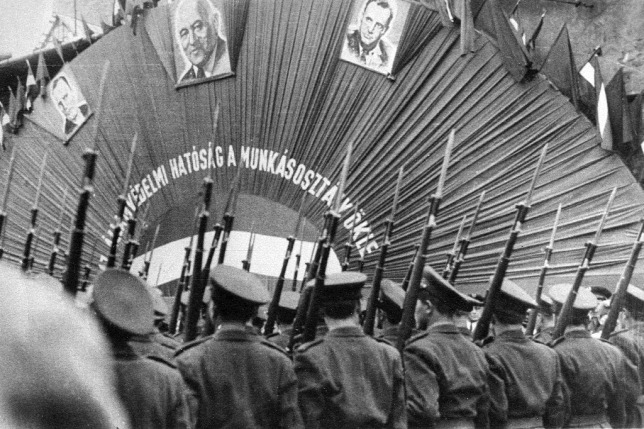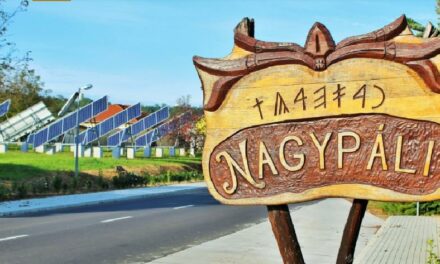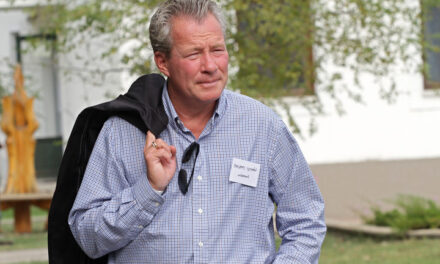The historian Zsuzsanna Borvendég's series was originally published on the PestiSrácok website, but there are certainly those who missed it. But those who haven't read all the parts should also read it again. Knowing the whole picture, can we understand how we got here?
In the previous parts of the series, we repeatedly pointed out that for the communists - on the way to building up total power - it was at least as important from the beginning to control the flow of capital in Hungary as it was to establish control over society by setting up the political police and continuously expanding its powers. However, while the latter was relatively easy to implement thanks to the presence of the Red Army, a significant part of the money movements can only be interpreted in an international context, i.e. the existence of local dominance proved to be little. It is no coincidence that we have data from 1946 that the Hungarian communists started building networks in the financial stronghold of Europe.
As the financial center of the world, Switzerland played a key role in the bloody history of the twentieth century despite – or rather because – it managed to guarantee the country's neutrality during both world wars. The banks of the Alpine country assisted in the preservation of either Nazi or Communist assets without batting an eye. They ensured the flow of money and, citing bank secrecy, gave the possibility that these amounts with an unclear background could be used without consequences, even for illegal purposes.
Thanks to the CIA, we know the Hungarian liaisons
The American intelligence naturally tried to map the path of the flow of money of the communist networks, so they also knew the Hungarian liaisons active in Switzerland. Thanks to CIA sources, we know who the MKP sent to Bern in the second half of the 1940s in order to fulfill Soviet expectations by using their - presumably Comintern and émigré - connections there. Their task was to serve the Soviet economic interests and to support the Western left-wing movements essential to the launch of the "world revolution".
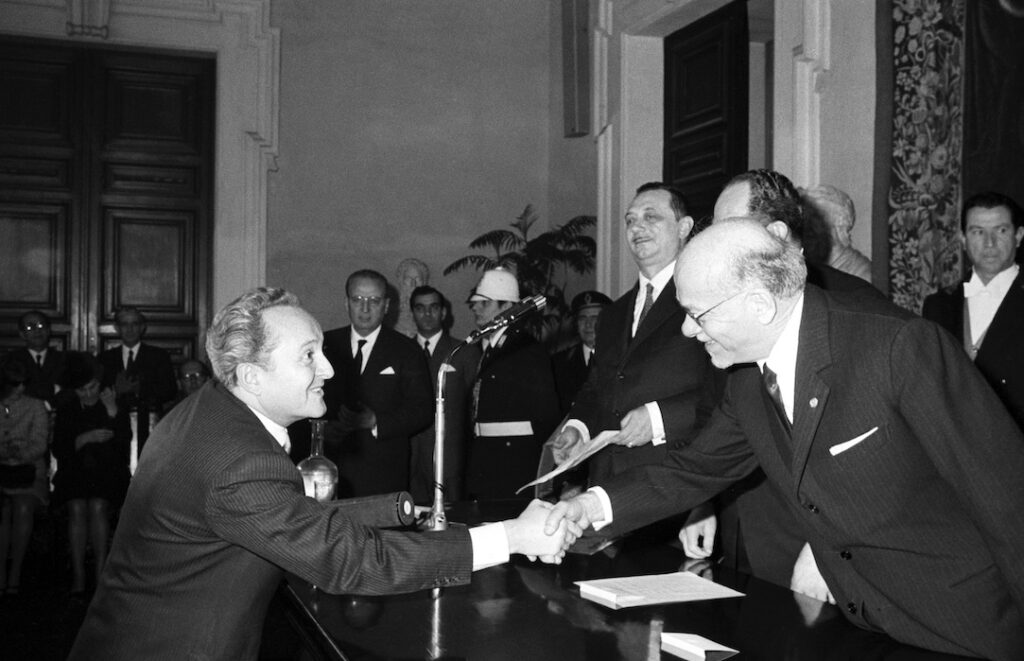
József Száll receives an award in Rome (photo: MTI)
From 1946 to 1950, two "reliable comrades" - who had been active in underground communist networks for years - managed the activities of the Swiss "Hungarian mafia". One of them József Száll , the other János Nyerges .
Száll is one of the most controversial figures of post-1945 diplomats, whose career rose with astonishing speed. the details of his life Gábor Andreides (Gábor Andreides: A reliable comrade. József Száll's journey from MKP to P2), but there are still many unanswered questions about him. During the war, he joined the illegal communist movement, and after 1945 he worked for a while in the editorial office of Szabad Nép, but already in 1946 he was posted to Bern as embassy secretary. According to his later recollections, his task was to repatriate Hungarian assets deposited in Switzerland during the war. Száll's economic activities were not only noticed by American intelligence, but also by the Swiss Intelligence Service as an agent of the Comintern. There was also the possibility that he would be expelled, but in the end it was decided that it was unnecessary to burden the relationship between the two countries with such a diplomatic inconvenience, when the successor would obviously continue Száll's abandoned work.
He traveled around the world, then "escaped" to Italy
Száll stayed in Switzerland until 1950. After his return home, he was entrusted with numerous missions, and was also stationed in China, Jakarta and Paris. He drew attention to himself when he emigrated with his family in 1970, after suspicions arose that he had committed economic crimes. He was interrogated by the American secret service, and finally settled in Italy, where he became involved in the scandal surrounding the P2 Masonic lodge, of which he was a member, in the 1980s.
Of the two, however, János Nyerges is the more interesting figure. In fact, Nyerges became one of the most important key figures of the interest group that would later be defined as the foreign trade lobby/mafia.
János Nyerges was also a great world traveler
There is relatively little information about Nyerges' life before 1945. He was born on Christmas Day 1918 and soon became an orphan: his father, Béla Neumann, was murdered in 1920 because of his activities in the Soviet Republic. Nyergest was raised by his mother and uncle, he graduated from Újpest in 1937. He began his higher education in Vienna, then moved to Paris, where he obtained a commercial degree at the École des Hautes Études Commerciales. The following year, he traveled the world as a commercial trainee. His biographical summary shows that he was sent to South Africa and then "delegated" to Switzerland. It is a vague wording, from which no tangible conclusions can be drawn regarding who employed him at that time, but later the state defense made several references to Nyerges' good connections with the companies of the Swiss Communist Party, and they relied on his expertise when conducting various banking transactions. All of this supports the CIA's information that the supervision of the financial affairs of the international communist network - at least the part that was managed by Hungarians - was part of it.
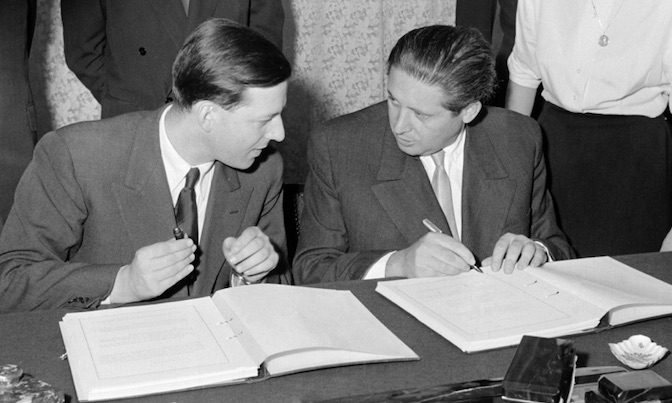
János Nyerges (right) signs a commercial contract (photo: MTI)
It is possible that he joined an illegal organization between the two world wars. In any case, his knowledge and experience made him indispensable after 1945.
He drilled the superior of the socdem
According to his autobiography, he returned home from his apprenticeship in 1939, and from 1940 he performed labor service. In 1944, he was sent to Bor, to the camp where Miklós Radnóti was also imprisoned. Unfortunately, he was not as lucky as Nyerges, who escaped and joined the Yugoslav partisans and then the Red Army. He took part in the Transdanubian campaign and landed in Romania in August 1945. From September 10, 1945, he worked at the Communist-controlled Foreign Trade Directorate, and in October 1946 he was again sent to Bern, where he was entrusted with the organization of the foreign trade office.
Since at that time there was still a coalition government in this country and the post of foreign minister was in the hands of small farmers, the communists could not prevent other people besides their own people from receiving diplomatic appointments. In Switzerland, the social democrat János Beck became Nyerges' superior, who refused to participate in the actions of the communist businessman - although there is a good chance that he did not even know the details. According to CIA information, Nyerges did everything to disable Beck, who was forced to emigrate in 1948 , so that his deputy could take over the leadership of the office.
Miklós Bauer became its maintenance officer
Of course, it was not possible to get a foreign placement - especially in such an important city - without the consent of the political police. Nyerges arrived in the Alpine capital as a recruited agent of the Economic Law Enforcement Department (the infamous GRO), and from 1948 - when the GRO was merged into the State Defense Authority of the Ministry of the Interior - he became a resident of the state defense. It included the control of deals concluded by foreign trade companies and the supervision of the foreign activities of company representatives. He primarily had to collect economic news, but he was also tasked with gathering military information: he had to keep an eye on the factories where war articles were produced.
In October 1950, he was sent home at his own request, which was justified by the fact that he had been living abroad since the age of 18 and wanted to serve in his country in the future. He became head of department and then head of department at the Ministry of Foreign Trade, and was responsible for coordinating economic relations with Western countries. From the point of view of national defense, he held a very important position, so the leaders of the ÁVH continued to expect active cooperation from him. Its maintenance officer Miklós Bauer , the father of the later SZDSZ politician, Tamás Bauer . The "nailed Bauer" therefore not only engaged in torture in the cellars of Andrássy út 60, but - at least for a while - he also monitored the construction of the foreign trade relationship system.
(The piquancy of everything is that he himself was able to see the network - perhaps he could even help it - which was built primarily using former high-ranking Nazi officers after 1947, while he participated in the torture and condemnation of hundreds of people labeled as "fascists". )
Nyerges was responsible for all commercial transactions related to capitalism, he was also responsible for the related travel reports and the supervision of Western reports. Of course, his best connections were in Switzerland, and he was also entrusted with keeping the cooperation with the local communist party organizations alive. For example, when there was confusion regarding the support of party companies of the Swiss left, Nyerges was sent to Bern to clear it up. They were also tasked with proposing "how to better support them financially".
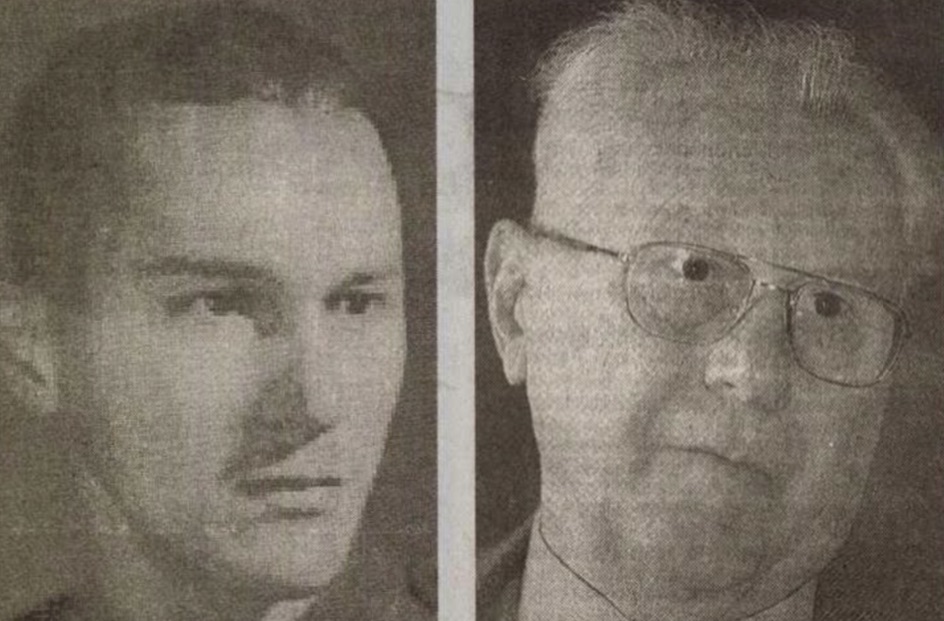
The "nailed Bauer" in youth and old age (photo: Magyar Hírlap)
A gray eminence at home, a key figure known in the West
János Nyerges never reached a position higher than the head of a department in the ministry, yet as the gray eminence of foreign trade with the Western world, he became one of the most important figures of the foreign interest group. All Western business ran through his hands, and his wide – and certainly opaque to others – network of contacts made him known to European economic specialists. His name was better known in some institutions of the European Economic Community (EEC) than in this country. In practice, it was Nyerges who not only shaped and managed the economic relations with the capitalist West, but was also decisive in the negotiations with the Common Market. From the 1960s, he advocated that Hungary open up to the EEC. He wanted to force Western countries to break their protectionist policy towards Hungary.
Along this strategy, he also led the accession negotiations to the General Agreement on Tariffs and Trade (GATT).
János Nyerges will be a recurring character in this series, as it is impossible to talk about the depths and vicissitudes of foreign trade in Kádár without mentioning him.
It has also become unavoidable in the field of economic diplomacy, the West German negotiations with big capital fundamentally influenced the market acquisition of large Western companies in our country. According to state security reports, Nyerges and his entourage had regular consultations with the German Free Democratic Party since 1957 (but they also had good relations with the Social Democrats and the Christian Democrats) on economic matters, and things were said in these discussions that even then cast a depressing shadow on the distant future.
The Germans were already planning the future stores in 1957
A quote from a contemporary intelligence report: In Hungary, "changes have taken place within the industry that preclude the possibility of restoring property rights, that is, the pre-1945 owners getting back their former factories, banks, etc. The same applies to agriculture. It is therefore not the goal or interest of this German capital group to restore the pre-1945 economic system in the country in all respects.
However, he assumed [read: Nyerges' connection with one of the West Germans] that the state would later sell and lease certain companies and in this way Hungary would gradually return to the capitalist economic system. That is why this capitalist group sees a great perspective in building economic relations between the FRG and the people's democracies, as well as in being ahead of other Western capitalist groups in this field."
According to them, the West German capital circles already expected in 1957 that the future economic system change would not be accompanied by reprivatization, so they could participate in the acquisition of state assets. So it was.
Source: PestiSrácok
Author: historian Zsuzsanna Borvendég
(Cover image source: Veritas)

